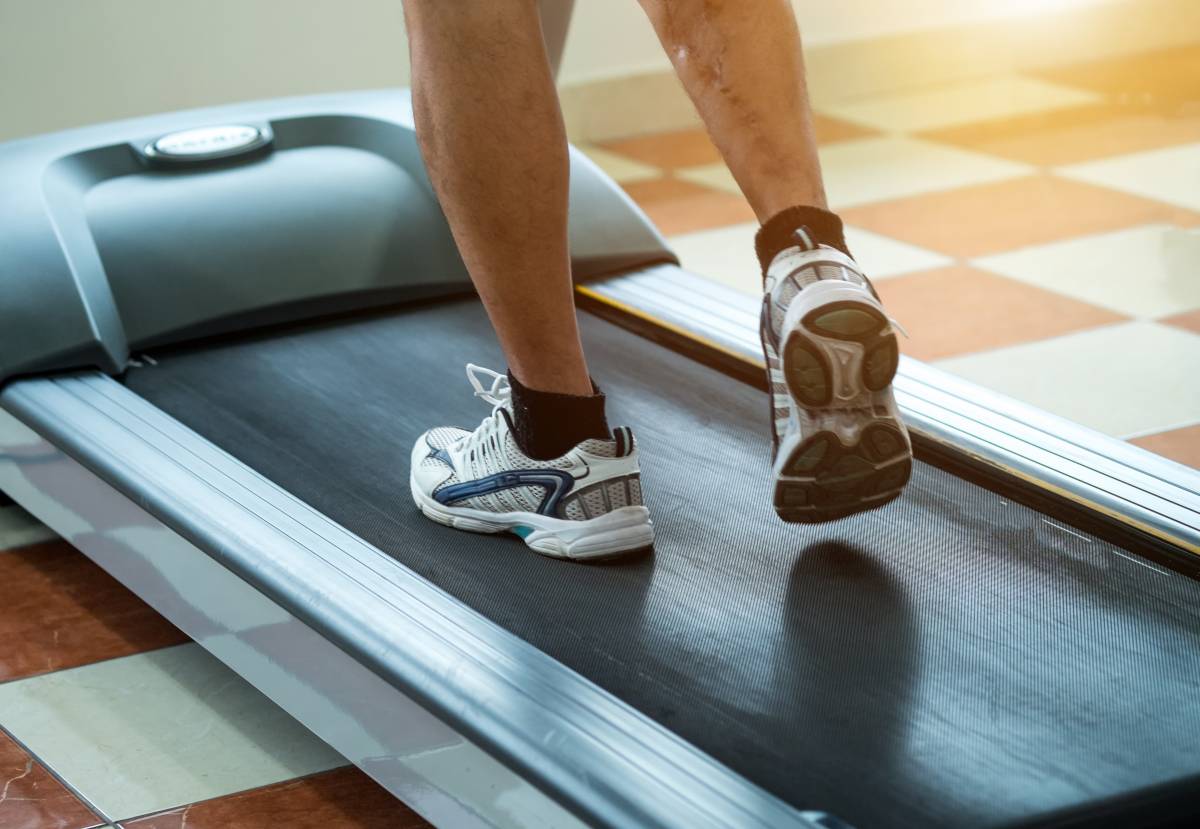Physiotherapist-run rehab programme yields dividends for patients with long-term Covid-19 symptoms
Concerns that offering rehabilitation programmes to patients displaying lingering symptoms linked to having had Covid-19 appear to be unfounded, according to the results of a physiotherapist-led study.
The physical and mental health of a group of patients who had lingering symptoms of Covid-19 improved in a number of statistically significant ways after they had completed a six-week rehabilitation programme, the study showed.

A list of symptom improvements – achieved in categories such as exercise capacity, respiratory symptoms, fatigue and cognition – is set out in a paper published last week (7 May) in the peer-reviewed journal Chronic Respiratory Disease.
Leicester-based specialist pulmonary rehabilitation and research physiotherapist Enya Daynes is the paper’s lead author.
Dr Daynes said: ‘We know that Covid-19 survivors present with a wide variety of symptoms and that a one-size-fits-all approach to managing these would not be appropriate.
'However, there are some overlap between the needs of Covid-19 survivors and patients who have accessed pulmonary rehabilitation for other conditions, such as chronic obstructive pulmonary disease (COPD).’
In a release appearing on the website of the National Institute for Health Research Leicester Biomedical Research Centre, Dr Daynes said the programme was based on a modified version of an established pulmonary rehabilitation course.
‘We found there were significant improvements in clinical outcomes of walking capacity and symptoms of fatigue, cognition and respiratory symptoms – factors that patients tell us most affect their quality of life.’
30 patients followed a six-week programme
A total of 30 patients attended 12 face-to-face exercise rehabilitation classes. The classes, which were held twice weekly for six weeks, offered aerobic exercises, such as walking or using a treadmill, and strength training for arms and legs.
The patients also took part in discussions to support symptom management that were based on information available on the NHS’s Your Covid Recovery platform. See: https://www.yourcovidrecovery.nhs.uk).
The researchers measured patients’ exercise capacity using incremental and endurance shuttle-walking tests. Fatigue levels improved by five points on the Functional Assessment of Chronic Illness Therapy Fatigue Scale. The patients’ overall wellbeing and cognition both improved, as measured by standardised clinical assessment tools.
All the participants – who were referred through follow-up telephone assessments following hospital discharge, at face-to-face Covid clinic assessments, or by their GP – had physical and/or psychological symptoms that were affecting their daily activities.
Exclusion criteria
Potential recruits with acute symptoms or who were deemed to be unstable medically (with, for example, uncontrolled diabetes) were excluded. Those with symptoms such as a loss of taste or smell were also excluded, because it was thought they were unlikely to benefit from attending.
The mean age of the participants was 58, and they were fairly evenly split gender-wise. Most (87 per cent) had been admitted to hospital with Covid-19, staying for 10 days on average. Fourteen per cent of them had received mechanical ventilation and had been treated in intensive care units. Four had a pre-existing respiratory condition, such as asthma or chronic obstructive pulmonary disease (COPD).
There has been concern that rehabilitation may worsen or trigger symptoms of post-viral fatigue and that exercise therapy may exacerbate fatigue ... Our results did not show that fatigue worsened among the group of patients on the study, and that many of their symptoms improved [Professor Sally Singh]
Professor Sally Singh
Sally Singh, a physiotherapist by background who is the head of cardiac and pulmonary rehabilitation at hospitals in Leicester and professor of professor of pulmonary and cardiac rehabilitation at Coventry University, was a co-author.
Professor Singh said: ‘This adapted rehabilitation programme for individuals following Covid-19 has demonstrated promising improvements in clinical outcomes. There were no drop-outs due to worsening symptoms and the high completion rate suggests that patients found it to be an acceptable treatment.
‘There has been concern that rehabilitation may worsen or trigger symptoms of post-viral fatigue and that exercise therapy may exacerbate fatigue. The exercise element of this programme is progressed by staff experienced in delivering pulmonary and cardiac rehabilitation programmes in line with patients' symptoms throughout the programme.'
Professor Singh added: ‘Our results did not show that fatigue worsened among the group of patients on the study, and that many of their symptoms improved. This suggests an adapted pulmonary rehabilitation courses can be part of a spectrum of patient-centred and holistic approaches to treating the many different presentations of lasting Covid symptoms.’
No control group
The paper acknowledges that the study lacked a control group and that further research involving more participants was required. It notes that participants improved by 112 metres on the Incremental Shuttle Walking Test and 544 seconds on the Endurance Shuttle Walking Test.
Conclusions
‘Rehabilitation programmes should aim to provide a holistic and multi-faceted approach to managing post-Covid symptoms. Clinicians should aim to individualise programmes and to monitor adverse events and symptoms, given the limited evidence in the field.
‘To conclude, a rehabilitation programme to support individuals with symptoms of long-Covid is safe and demonstrates improvements in exercise capacity and symptoms of breathlessness, fatigue and cognition.'
To see 'Early experiences of rehabilitation for individuals post-Covid to improve fatigue, breathlessness exercise capacity and cognition A cohort study’, visit: https://journals.sagepub.com/doi/full/10.1177/14799731211015691
For more information, see: https://www.leicesterbrc.nihr.ac.uk/exercise-can-help-support-recovery-of-patients-with-lasting-covid-symptoms-study-finds/
The National Institute for Health Research (NIHR) Leicester Biomedical Research Centre is a partnership between Leicester’s hospitals, the University of Leicester and Loughborough University. The NIHR supported the study.
Author: Ian A McMillanShare it with














